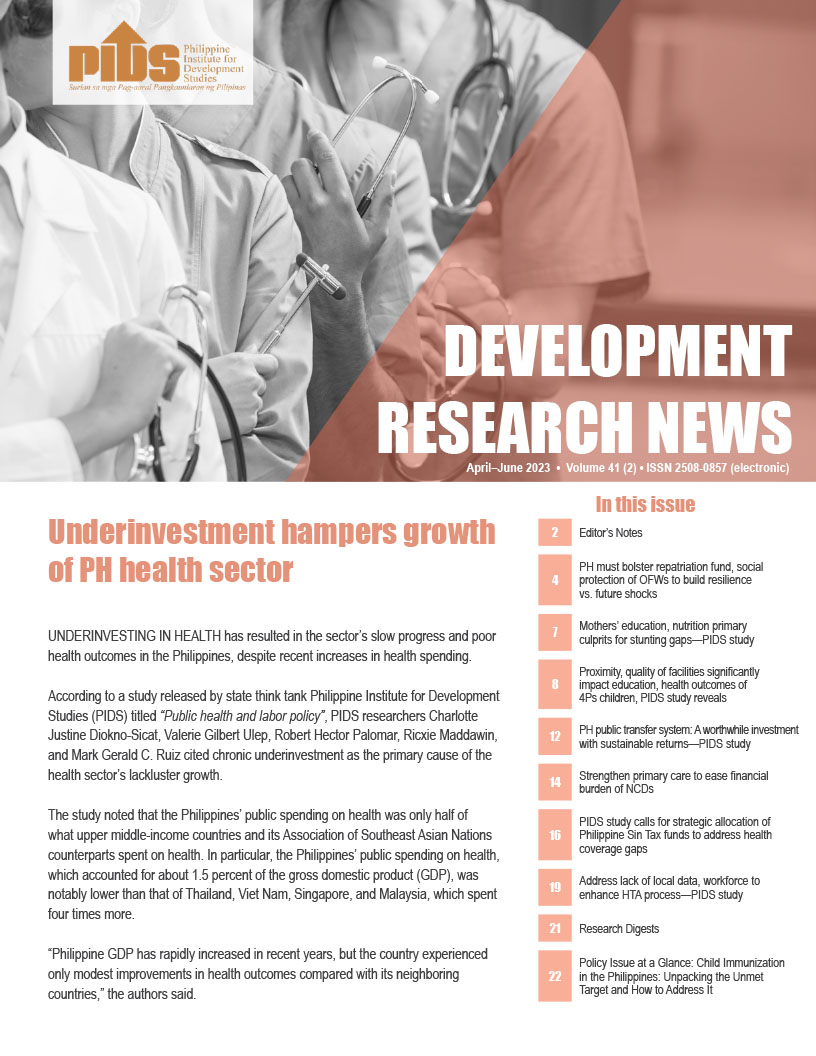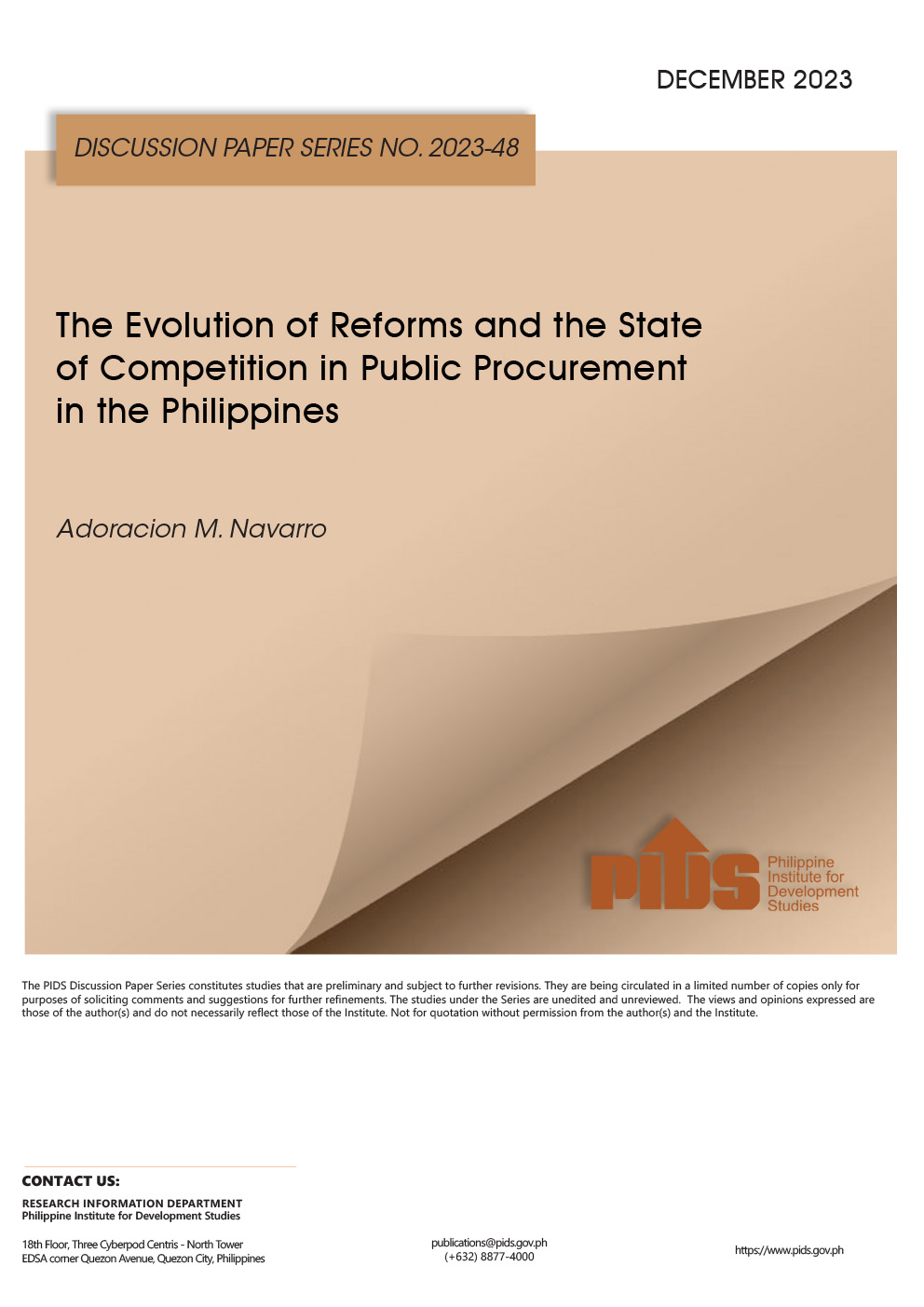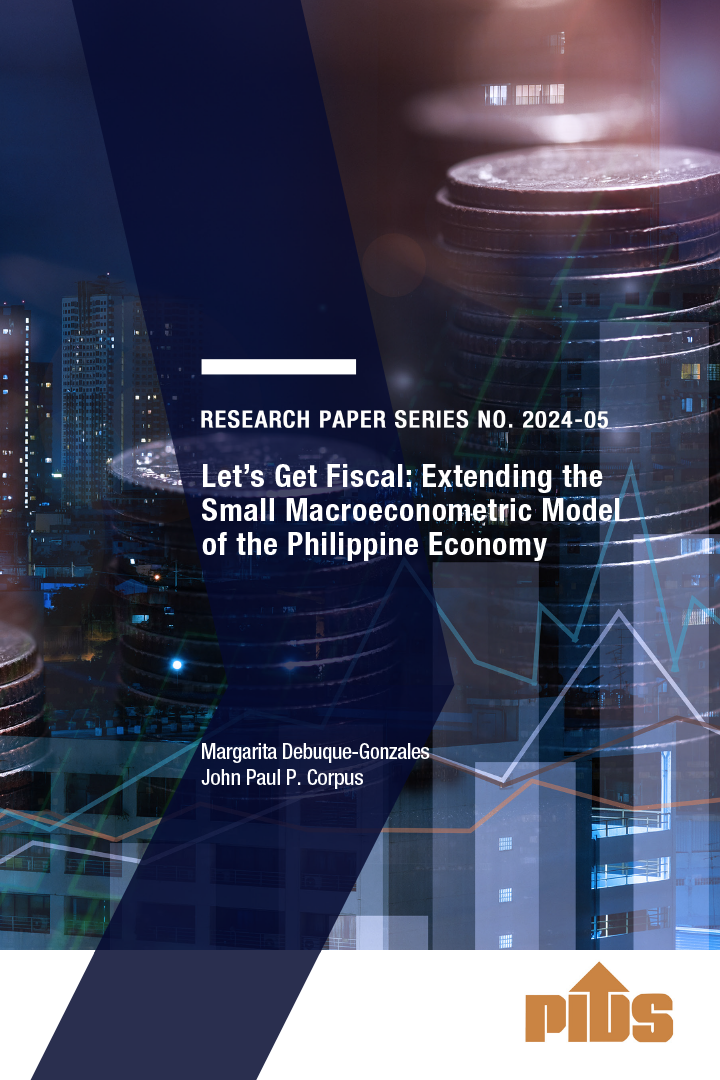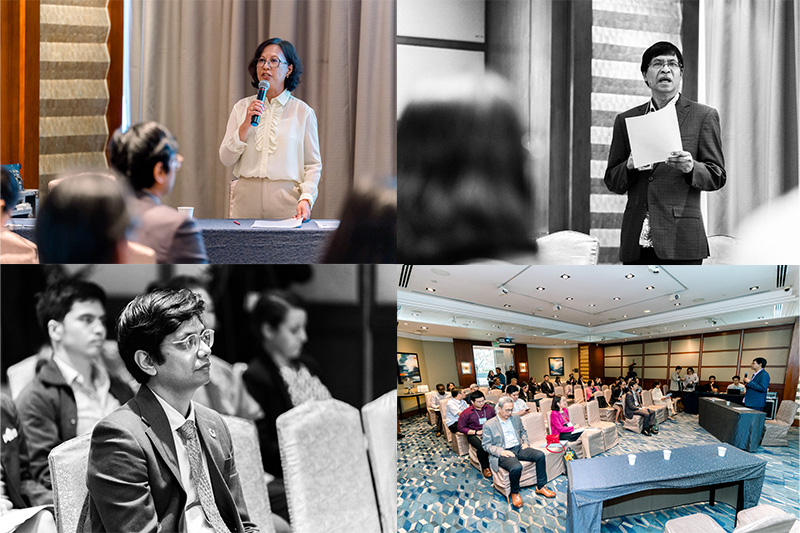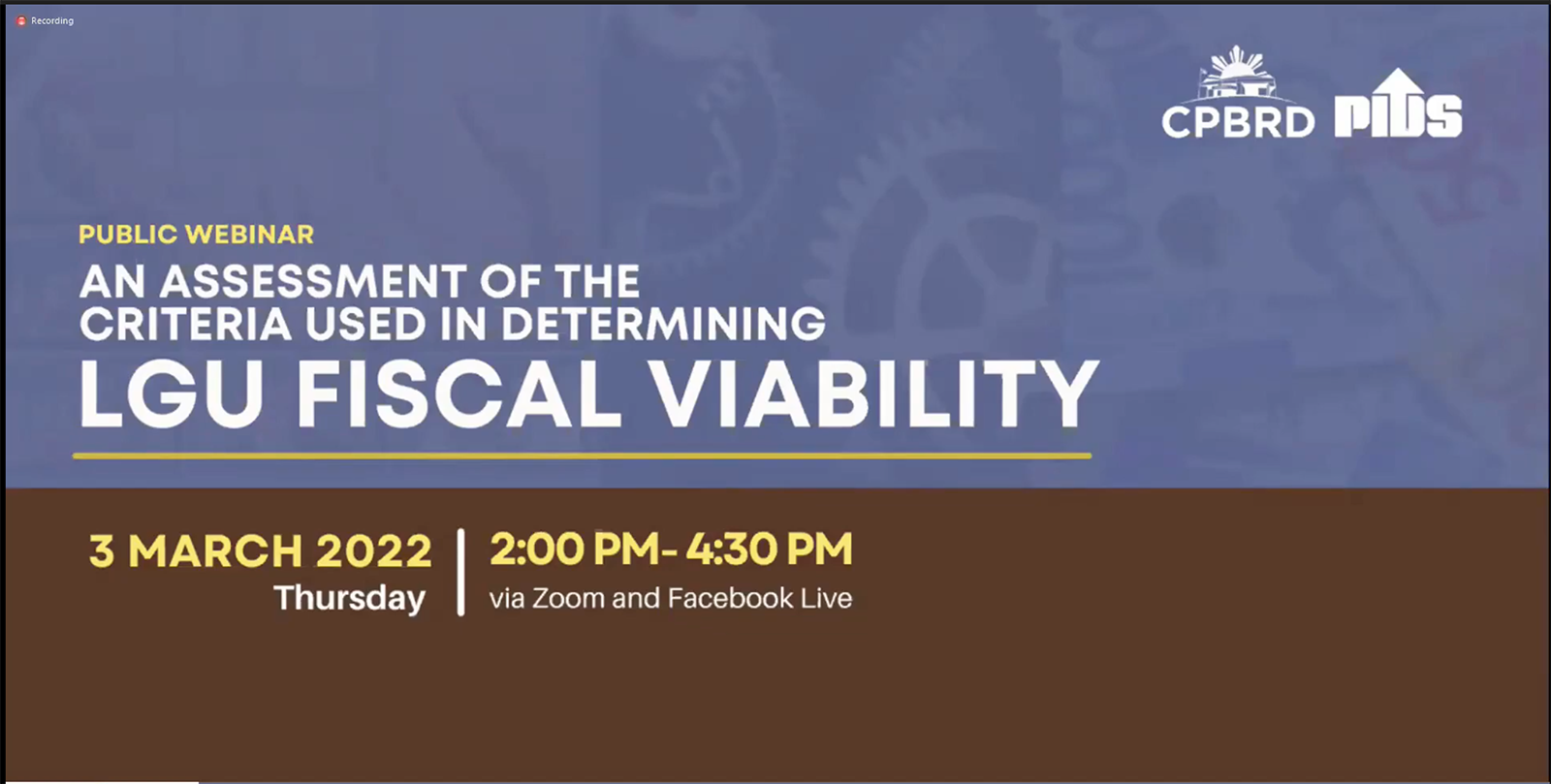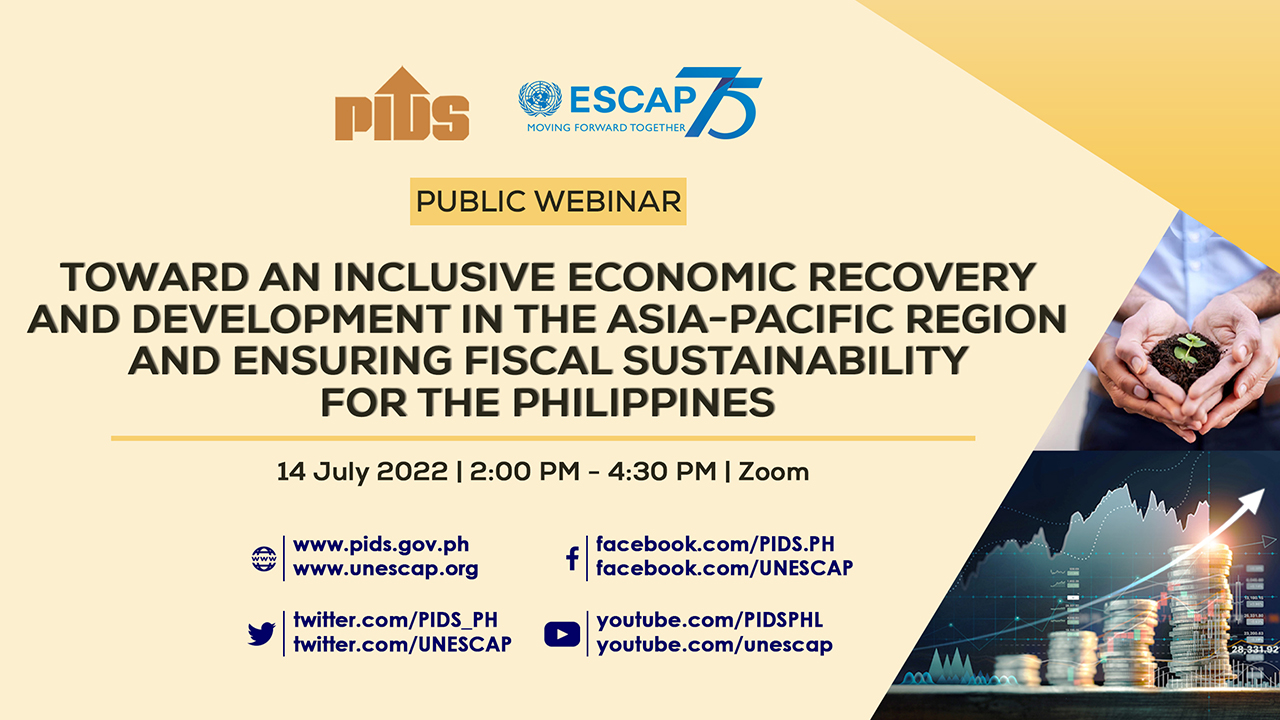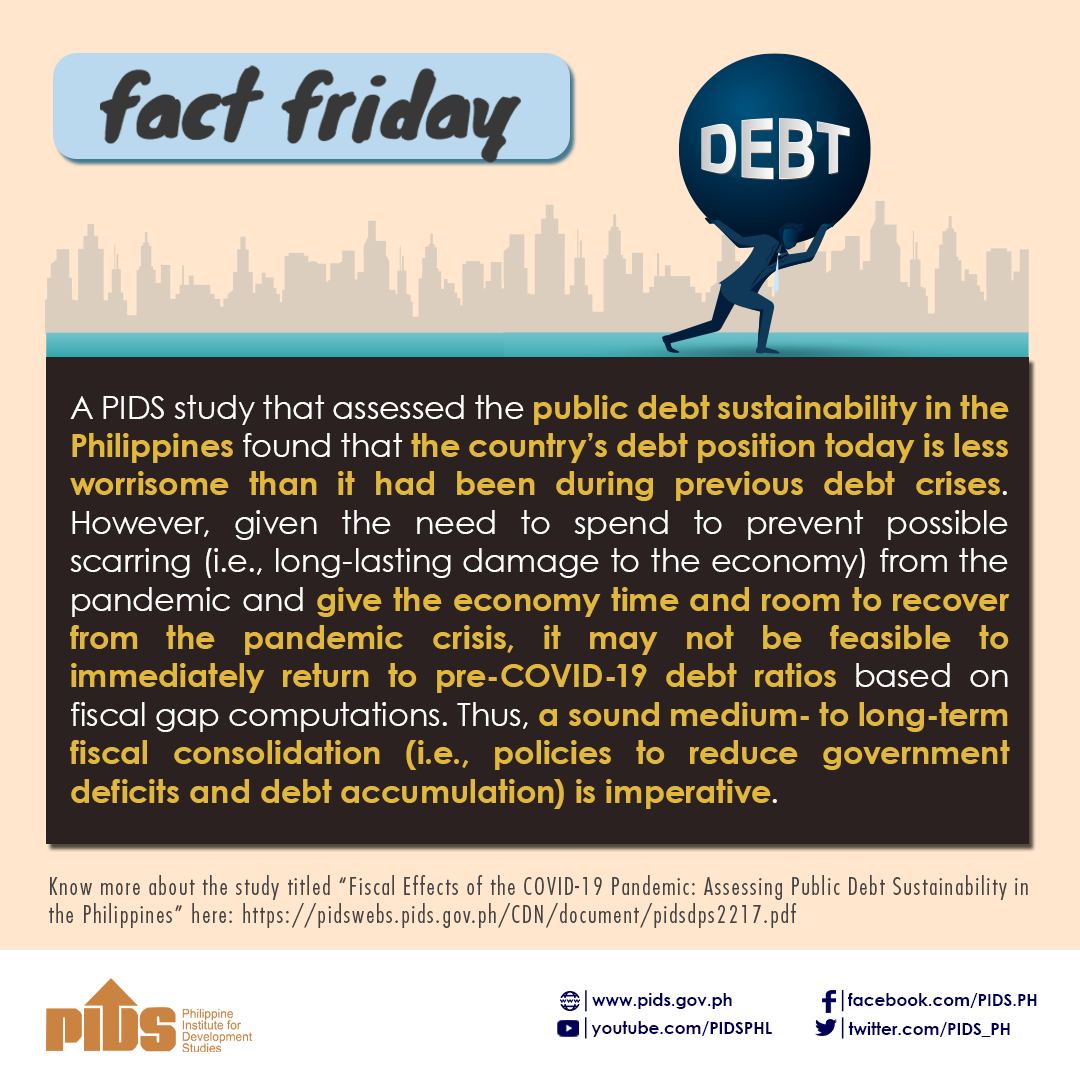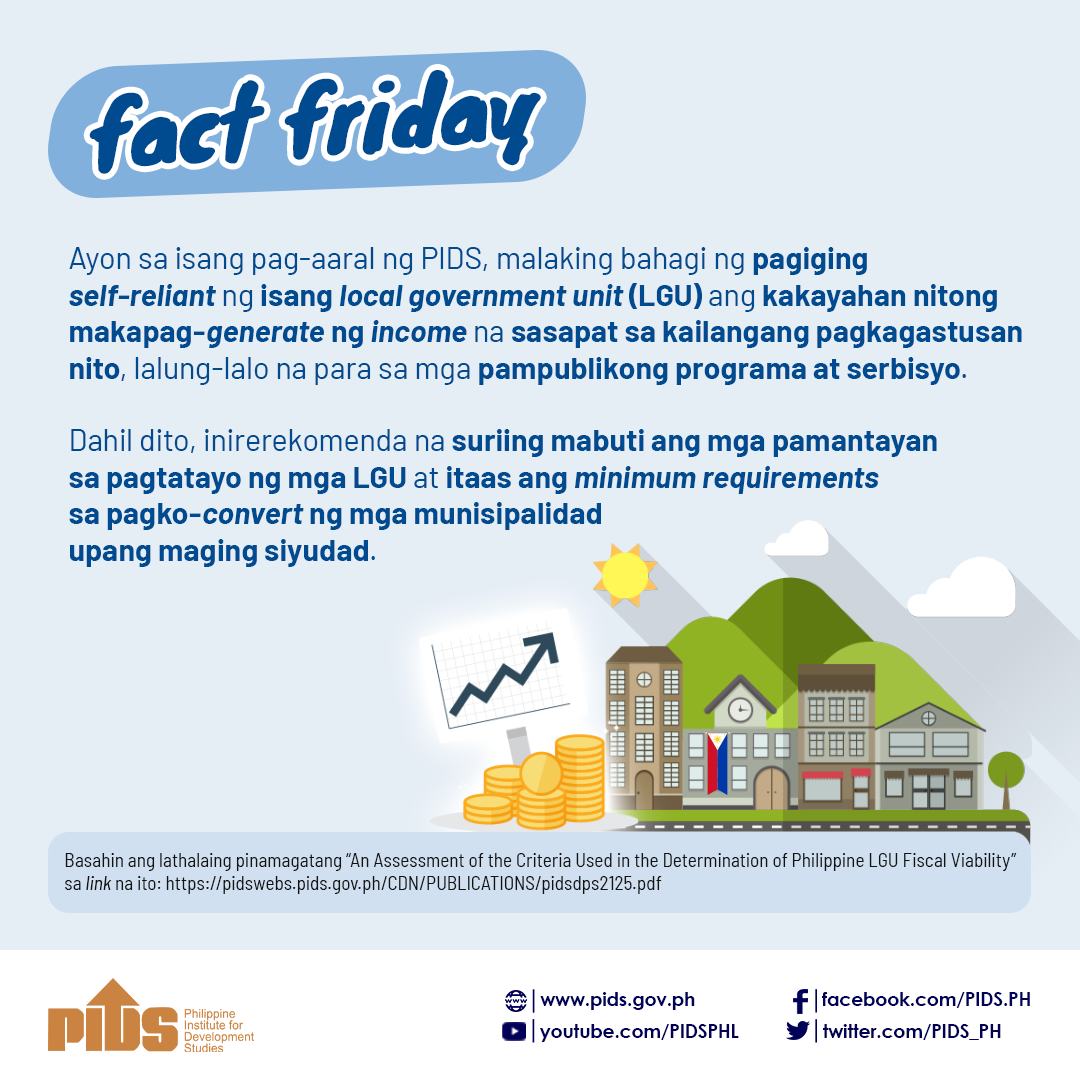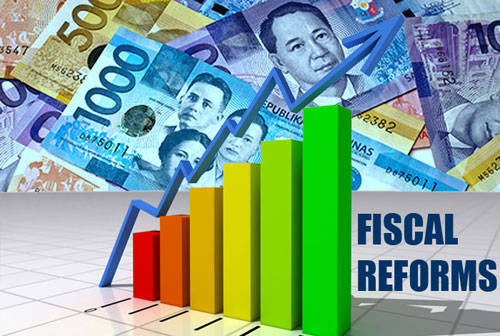
After decades in the doldrums, the Philippines is gaining ground economically. This is in part due to fiscal reforms carried out in recent years. These crucial reforms have yielded fruit—the three major rating agencies have rewarded the Philippines with successive credit upgrades this year. The country’s investment-grade status reflects a picture of fiscal health: the budget deficit has been kept at just around two percent of gross domestic product (GDP). National government debt has also gone down relative to the size of the economy, compared with previous years. The tax effort or the ratio of tax collections to GDP has increased - a reflection of the government’s firm resolve in increasing revenue collections and improving the administration of tax laws.
Key reforms have expanded the fiscal space, allowing the government to increase spending on social services and making its annual budget outlay more inclusive. The passage of Republic Act 10351 or the “sin tax” law, which raised the excise taxes on tobacco products and alcohol, has yielded billions for the universal health care program, the improvement of health facilities, and the attainment of the Millennium Development Goals. Analysis made by PIDS Senior Research Fellow Rosario Manasan on the various versions of the sin tax bill provided valuable inputs to legislators during deliberations on the tax measure. Manasan notes that the bicameral version of the bill has greatly simplified the excise tax structure, easing tax administration by minimizing opportunities for mis-classification or mis-declaration of goods and transactions. PIDS has also provided research support for a signature budget reform of the Aquino II Administration: zero-based budgeting (ZBB), which aims to do away with wasteful incremental budgeting and ensure fiscal discipline. Among the ZBB studies conducted by PIDS researchers pertain to the cost-efficiency and effectiveness of sitio and household electrification, reforestation, housing resettlement, and agricultural support programs.
Still, the latest Analysis of the President’s Budget by Dr. Manasan shows that the country’s fiscal space remains limited. Although the government has arrived at a more balanced budget distribution between social and economic services in the 2013 national budget, it continues to underinvest in certain basic services. For instance, our 2013 education budget still pales in comparison with those of our Southeast Asian neighbors. Low priority was also given to national defense, a critical area given current geopolitical issues.
To know more about the latest PIDS research on fiscal reforms and budget policy, visit the SocioEconomic Research Portal of the Philippines. Simply type ‘fiscal deficit’, ‘zero-based budgeting’, and related terms in the Search box.
Analysis of the President's Budget for 2013: Making Health Spending Inclusive
Analysis of the President`s Budget for 2012: Financing of State Universities and Colleges
Amending the Sin Tax Law
Who really holds the “power of the purse?”
Assessment of the Efficiency and Effectiveness of the Reforestation Program of the Department of Environment and Natural Resources
Cost Efficiency and Effectiveness of the Sitio and Household Electrification Programs
Efficiency and Effectiveness Review of the National Housing Authority Resettlement Program
Financing the MDGs and Inclusive Growth in the Time of Fiscal Consolidation
New Tax Measures Needed to Achieve the Millennium Development Goals

